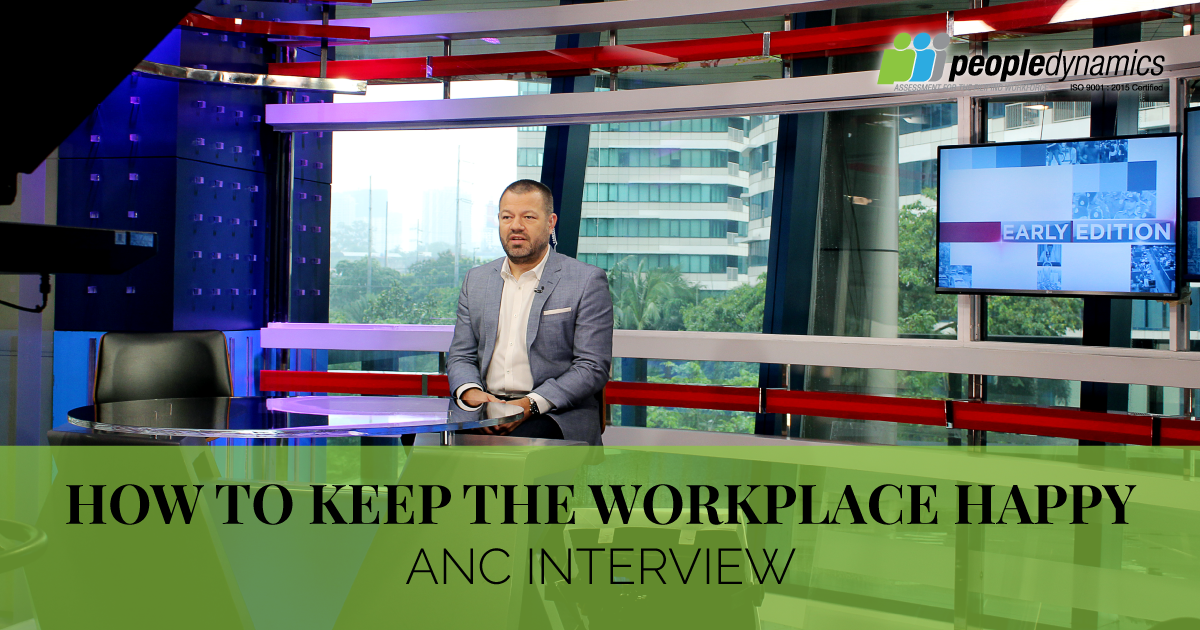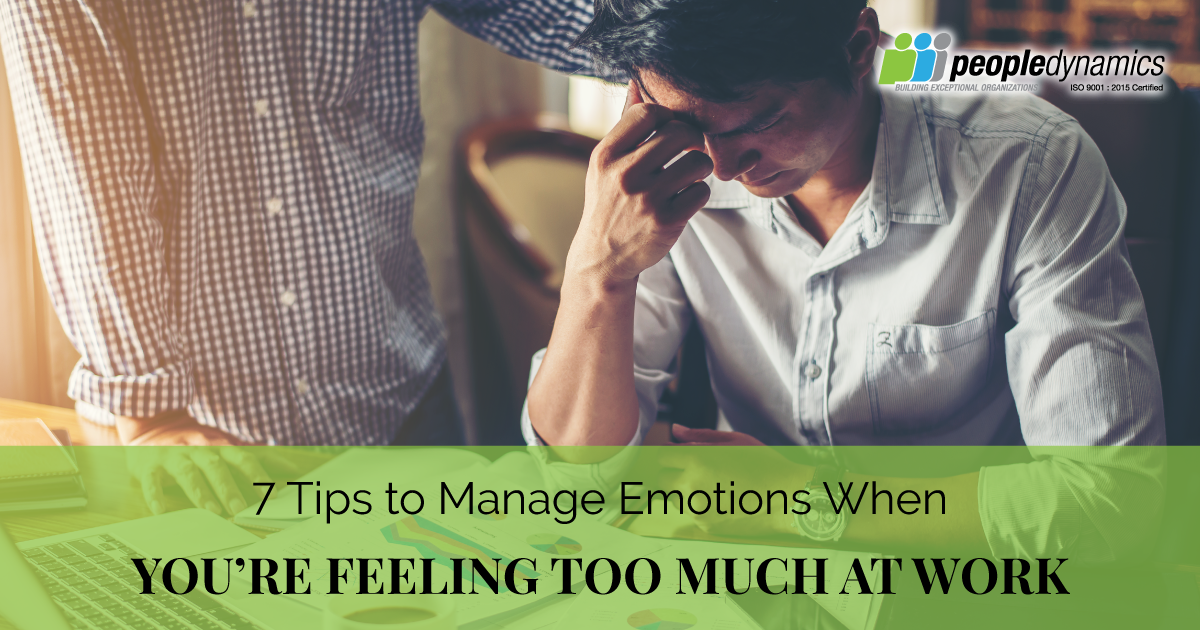A study conducted by Kronos Incorporated and Future Workplace found that 95 percent of HR leaders admit that employee burnout is sabotaging workforce retention. With the workplace being very stressful today, possibly even more stressful than before, how can you keep the workplace happy?
How to Keep the Workplace Happy
Last June 14, 2018, Dr. Ben Palmer, CEO and Founder of Genos International, one of the top companies providing emotional intelligence assessments, sat down for an interview during ANC’s Early Edition to talk about how to keep the workplace happy.
Some key points from on how to Dr. Ben Palmer’s interview on how to keep the workplace happy:
- The skill of being empathetic, at being self-aware, of knowing your own emotions and what’s causing you stress, and the way to enhance and change that is becoming really critical not only to the way people feel at work, but the way people perform at work, and ultimately, the way companies perform.
- Employees’ biggest concern today is uncertainty in the workplace. Lots and lots of transformational changes are happening in the workplace. But not all of them are being done well by organizations. People don’t feel consulted; people don’t feel certain about their future at work.
- High salaries don’t lead to greater motivation. More than anything, people are more motivated by working for an effective boss, getting along well with their colleagues, and really enjoying what they do. Money is something that erodes motivation and engagement when it’s not right.
The link between the way people feel and their performance at work:
- There’s a very strong link between the way people feel and the way people perform at work. If people feel valued, cared for, consulted, and understood—organizations where people feel like that financially outperform their counterparts.
- One importance of looking for emotional intelligence in people and recruitment is that the better people are at perceiving and understanding emotions, and regulating them—in themselves and others—the more you can create a workplace where people do feel the kind of emotions that facilitate performance and success.
- Emotional intelligence is not just about how to create and keep the workplace happy. It’s more about creating workplaces where there is an intelligent response to emotions. Negative emotions like anger and frustration are very important, but ultimately, it’s how you respond to those emotions that are most important. So that whenever you feel angry or frustrated, for example, you respond to it effectively. And if you feel happy, you use that effectively. To help arrive at better decisions, better behavior, and the best performance at work.
You can watch the full interview here: https://www.facebook.com/ANCearlyedition/videos/461131541008100/?v=461131541008100




